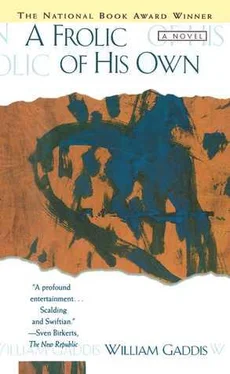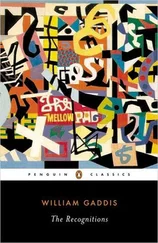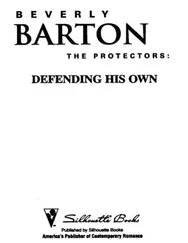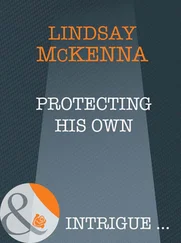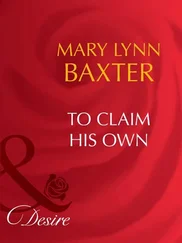Q But you have agreed that there are certain similarities?
A I can't help that.
Q In other words, you agree that similarities can occur without copying?
A Up to a point.
Q Up to what point?
A Well. Appearances, certain appearances, coincidences, facts, historical facts but depending how they're arranged, how they're expressed.
Q And that expression is what is protected by law?
A Yes.
Q In a play, would you say that this expression you speak of resides largely in the dialogue?
A Yes. Yes that and the arrangement of it, of the characters.
Q That the dialogue does not just advance the action of the play, but in large measure actually defines the characters?
A Yes, yes you can see that in the passages you just compared, can't you? I mean you wouldn't see me writing 'Does it pain dreadfully? You poor darling, how you must have suffered!'
Q They don't correspond at all, do they?
A With my play? No.
Q Let me then direct your attention to the second scene in your first act, if I may. Page 30, the dialogue between the Major and a character named Kane. Will you read it, please?
A Starting with the Major? 'I'll grant you, even a reasonable man, he won't bear old age easily in poverty, but the unreasonable man he wouldn't be at peace even if he was rich.'
Q And then they talk about money, don't they, that the ones who care little about it are the ones who haven't earned it, but those who have take it seriously, and Kane asks what's the greatest good his wealth has brought him, do you follow that? And then?
A Yes, he goes on, 'When a man faces the thought he has to die, he begins to see fears and anxieties that haven't troubled him before. You think of the tales we hear of the next world, how justice is going to be done to those that have done wrong here. We've laughed at them before but now they begin to rack your soul. What if they're true!'
Q Now will you listen to this and tell me if you find some similarity? 'And to those who are not rich and are impatient of old age… to the good poor man old age cannot be a light burden, nor can a bad rich man ever have peace with himself.
'May I ask, Cephalus, whether your fortune was for the most part inherited or acquired by you?
'Acquired! In the art of making money I have been midway between my father and grandfather' he goes on, they talk about money, and then the greatest blessing he has reaped from his wealth, and he responds as follows. 'For let me tell you, Socrates, that when a man thinks himself to be near death, fears and cares enter into his mind which he never had before; the tales of a world below and the punishment which is exacted there of deeds done here were once a laughing matter, but now he is tormented with the thought that they may be true…' Now. Do you find a similarity between those passages?
A Well of course, I…
Q I haven't finished. Here is another passage. They are discussing justice, and suddenly this character Thrasymachus breaks in. 'What folly, Socrates, has taken possession of you all? And why, sillybillies, do you knock under to one another? I say that if you really want to know what justice is, you should not only ask but answer… for there is many a one who can ask and cannot answer.' And so forth, to the response '…don't be hard upon us. Polemarchus and I may have been guilty of a little mistake in the argument, but I can assure you… If we were seeking for a piece of gold, you would not imagine that we were ''knocking under to one another…'' And why, when we are seeking for justice, a thing more precious than many pieces of gold…' they go on discussing the problem, giving evasive answers, till Thrasymachus loses patience. 'Listen, then, he said; I proclaim that justice is nothing more than the interest of the stronger. And now why do you not praise me? But of course you won't.' Do you recognize that passage?
A Of course I do.
Q Now here is your protagonist Thomas, page 39 of the second scene, arguing with the character Kane. 'This is rubbish! The two of you bowing and scraping to each other like a pair of fools. If you really want to know what justice is, Kane, don't just ask questions and trip him up every time he answers. You know it's easier to ask than to answer. You answer now, and tell me what you think justice is…' Kane responds. 'Don't be angry with us. If we've made mistakes we couldn't help it. Why, if we were looking for gold we wouldn't waste time bowing and scraping to each other, and we're looking for something worth much more…' until Thomas loses patience. 'All right then, listen. I say that justice is nothing but the advantage of the stronger. There. Why don't you clap for that?' You recall writing this passage, don't you?
A Of course.
Q And do you see a Striking Similarity between it and the one just before it?
A Of course.
Q Let me briefly review one more so that no doubts remain. Your character Kane again. 'The Bible certainly can't mean to give everything back on demand to someone who's out of his senses, a man whose shotgun you've borrowed, to give it back to him when he's out of his head. Still, it's owed to him, isn't it. So, the repayment of a debt is justice, but this case is not included?' Now if I may ask you to compare this, 'Concerning justice, what is it…? Suppose that a friend when in his right mind has deposited arms with me and he asks for them when he is not in his right mind, ought I to give them back to him?' And so forth, now again. Do you ñnd a striking similarity here?
A Of course.
Q Can you identify the source of the passages I have cited in comparing your work?
A Of course.
Q Will you please do so for the record?
A The first book of the Republic, obviously.
Q Can you be more specific?
A Book One of Plato's Republic.
Q You say from, from the work by Plato. Do you mean lifted from? taken from?
A Paraphrased.
Q Do you mean the idea, or its expression?
A Both.
Q Now the principal idea set forth in the first book of Plato's Republic is the attempt to define justice, is it not?
A Yes, it…
Q It's simply there isn't it, the way you might find Richard III in Holinshed, or Caesar in Plutarch, all just there for the taking?
Q No but those are historical figures, this is an idea.
A Fine. And when Thrasymachus says, 'I proclaim that justice is nothing more than the interest of the stronger' he is simply expressing an idea, is he not?
A His own interpretation, yes.
Q Exactly. He's quite a cynic, isn't he.
A No. No he's a Sophist, quite a different school. The Cynics were…
Q Sophist of course, I stand corrected. A school as you say, they charged fees for their teaching and Thrasymachus now wants to be paid for discussing justice doesn't he? And when Socrates pleads he has no money and his friends, Glaucon and the rest of them, offer to pay his part he's posing as a poor student isn't he? But he's really turning the tables, compelling the teacher to explain what he means with his clever questions it's what's loosely referred to as the Socratic method isn't it, he is really the teacher who is just posing as the amateur, the dilettante as though all this is just a hobby of his? He's using the ruse that he doesn't charge fees like Thrasymachus does, the professional, the Sophist, the proud hack like the book reviewer instructing the great unwashed in the works of other professional hacks who…
MR.BASIE: I have to object to this line of questioning.
MR.MADHAR PAI: Is this as to form Harold? Is it for the record?
MR.BASIE: It's for the record and as to form yes, deliberately confusing the witness getting way off the tracks on book critics and…
MR.MADHAR PAI: Excuse me old sport, I did not say book critics I said reviewers, there's a world of difference although the reviewers are delighted to be referred to as critics unless they're on the run, then they take refuge in calling themselves journalists. Now if you'll let me proceed with my…
Читать дальше
